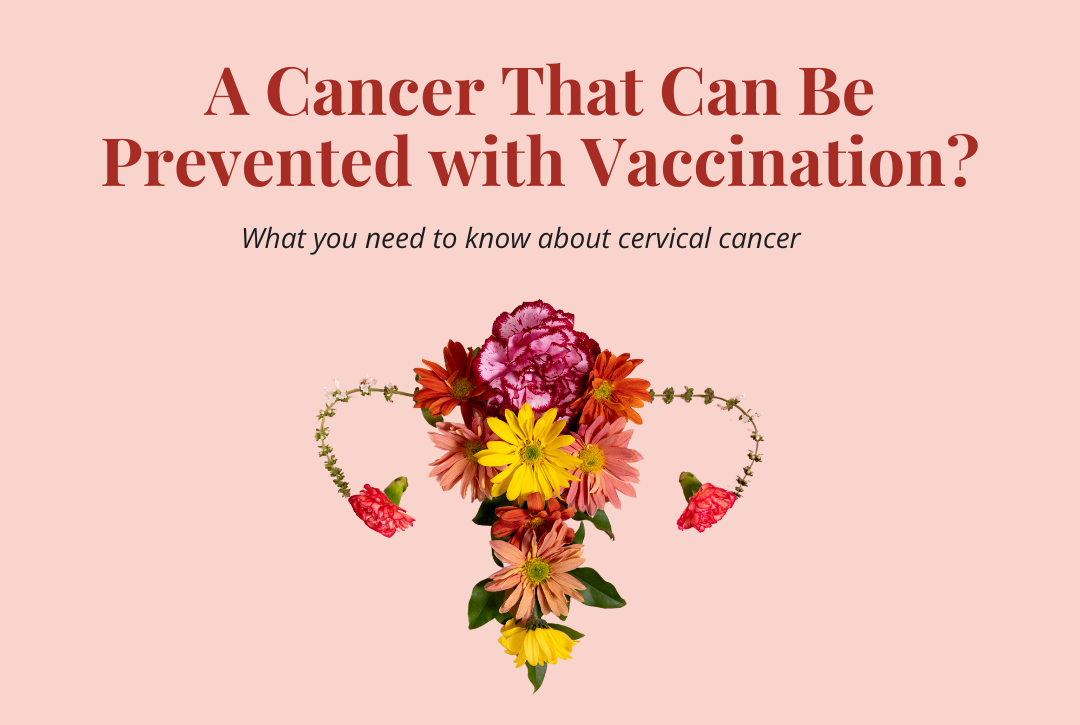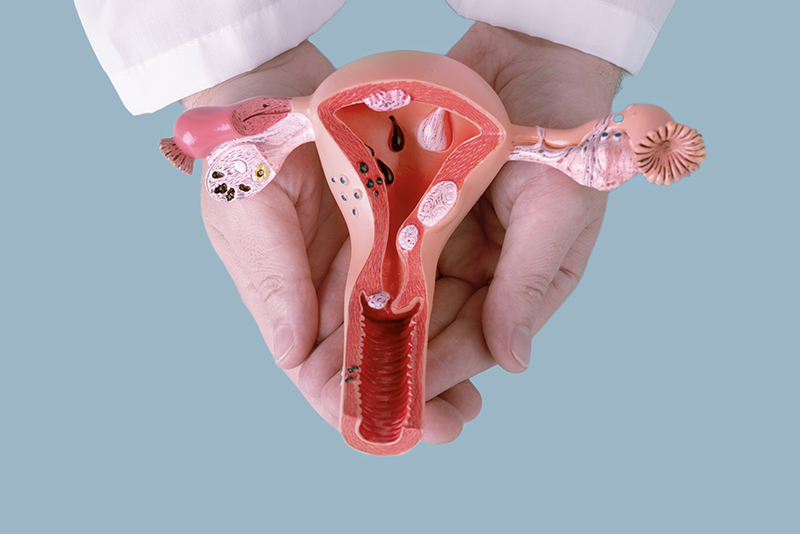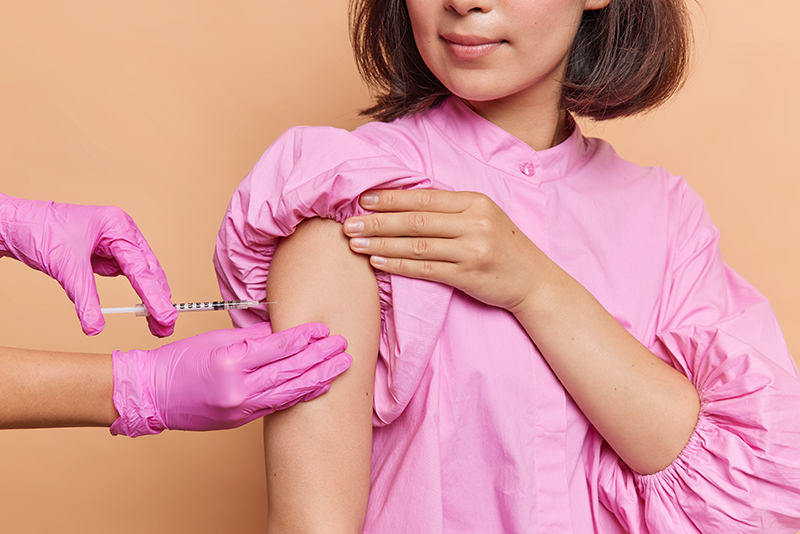A Cancer That Can Be Prevented with Vaccination?

Did you know that cervical cancer is the fourth most common cancer in women globally1? Every year, more than 200 women in Singapore are diagnosed with cervical cancer2.
What is cervical cancer?
Cervical cancer is a type of cancer that occurs in the cervix, a small canal that connects the uterus and vagina. When a woman is expecting, the cervix helps keep her baby in place until the child is fully developed. The cervix widens during childbirth so that the baby can be born.
While cancer usually takes place when one or more gene in a cell change or mutate, there are other identifiable factors that specific cancers can be attributed to. For cervical cancer, one of the top cause includes strains of sexually transmitted infections (STIs) such as the human papillomavirus (HPV).
Almost all sexually active people will be infected with HPV at some point in their lives. Even though one’s immune system can naturally clear the HPV virus from their body, persistent infection with high-risk HPV strains can cause abnormal cells to develop, leading to cervical cancer.
The most common HPV strains that account for about 70 per cent of cervical cancer are the subtypes 16 and 18 (also known as HPV16 and HPV18).
What are the symptoms of cervical cancer?
Cervical cancer3 usually displays no signs or symptoms in the early stages. As the cancer advances, symptoms may include:
- Irregular or abnormal vaginal bleeding after sexual intercourse, between periods, or after menopause
- Increased watery vaginal discharge with a foul odour and presence of blood spots
- Unexplained and persistent pelvic or back pain
- Pain during sexual intercourse
If you experience any of the above symptoms, visit a doctor as soon as possible for a detailed checkup. An early cervical cancer diagnosis and treatment increases one’s chances of remission and recovery.

What are the risks of cervical cancer?
Besides HPV infection, other risk factors of cervical cancer include a weakened immune system and herpes. Smoking of tobacco or exposure to secondhand smoke also increases one’s risk.
Studies have also shown that women who have used oral contraceptives such as birth control pills for five or more years, have a higher risk of cervical cancer than those who have never used them4.
Can cervical cancer be prevented?
All females aged nine to 26 are highly recommended to receive HPV vaccination. The vaccines can protect one against specific strains of HPV that may lead to cervical cancer.
There are currently two types of HPV vaccines approved for use in Singapore. Here is a quick look at how the vaccines work.
| HPV2 Vaccine | HPV9 Vaccine | |
| Protects against the following HPV strains | 16, 18 | 6, 11, 16, 18, 31, 33, 45, 52, 58 |
| Recommended age | Females aged 9 to 25, or as advised by a doctor | Females and males aged 9 to 45, or as advised by a doctor |
| Vaccination schedule | Females aged 9 to 14 Two doses, 5 to 13 months apart* Females aged 15 to 25 Third dose to be taken 5 to 12 months after the first dose. |
Females and males aged 9 to 14 Two doses, between 5 to 13 months apart* Females and males aged 15 to 45 Third dose to be taken 4 months after the second dose. |
*As long as the first dose of the vaccine is taken before the 15th birthday, the two-dose schedule can apply.
How often should cervical cancer screening be done?
Women between 25 and 29 years old who have had sexual intercourse and/or are sexually active, are recommended to get a Pap smear once every three years. Women aged 30 and above should get a HPV test once every five years.
During a Pap smear or HPV test, cells from the cervix will be collected and examined for abnormalities.
To encourage regular health screenings, eligible Singaporeans can enjoy subsidised health checks under the Health Promotion Board’s Screen for Life programme. Pap smears are part of this programme, and can be carried out at a Raffles Medical clinic.
Does vaccination mean we can possibly see the end of cervical cancer?
Vaccination against HPV is a powerful tool in the fight against cervical cancer. Encouraging every eligible woman to get vaccinated is not just a personal decision, but a collective responsibility.
By increasing awareness and encouraging vaccination, we can create a protective barrier that not only shields individuals but also contributes to the broader goal of eradicating cervical cancer globally.
If you know someone aged of 9 to 25 who has yet to receive the HPV vaccine, share this article and encourage them to get vaccinated.
Together, we can beat cervical cancer!

This article is reviewed by Dr Derek Li, Senior Family Physician, Raffles Medical.
References
1 World Health Organization. 2023. Retrieved from: https://www.who.int/news-room/fact-sheets/detail/cervical-cancer (Accessed 11 January 2023)
2 Singhealth. Retrieved from: https://www.singhealth.com.sg/patient-care/conditions-treatments/cervical-cancer (Accessed 11 January 2023)
3 Cancer. 2022. Retrieved from: https://www.cancer.net/cancer-types/cervical-cancer/symptoms-and-signs (Accessed 11 January 2023)
4 Appleby, P., Beral, V., Gonzalez, A.B.D., Green, J., Franceschi, S., Peto, J., Plummer, M., Smith, S.J. 2003. doi: 10.1016/s0140-6736(03)12949-2

















